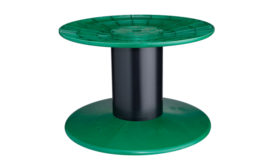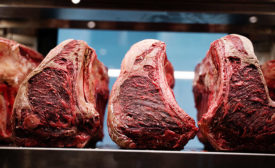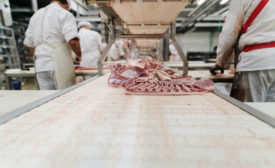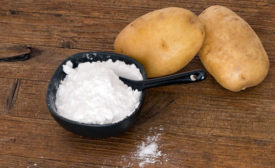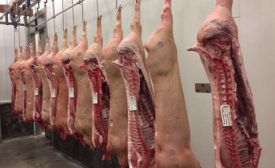Meat and Poultry Processing
Tech | Protein Problem Solver
Tech | Processing
Alternative proteins: ripe for the picking
Revenue opportunities abound for traditional meat and poultry processors in the plant-based sector, but operators must first master the category’s unique dynamics.
November 8, 2020
Tech | Meat Science Review
Surveying the dry-aged beef crust
Microbial communities on dry-aged beef in commercial meat processing facilities.
November 6, 2020
Food Safety | Rapid Testing
Rapid testing enhances capabilities but must be accurate
Swift testing for microbials can enhance food safety and cut product waste, but obtaining the results in a timely manner can be daunting.
Read More
Processing | Conveyors & Beltings
Keeping product rolling along safely
Sanitizing conveyors and belts efficiently is essential for food safety, reduced operating expenses.
Read More
Higher Education | Carcass Hanging Time
Microbials and the effect of extended hanging time on pork carcasses and blade steaks
Read MoreStay ahead of the curve. Unlock a dose of cutting-edge insights.
Receive our premium content directly to your inbox.
SIGN-UP TODAYCopyright ©2024. All Rights Reserved BNP Media.
Design, CMS, Hosting & Web Development :: ePublishing
